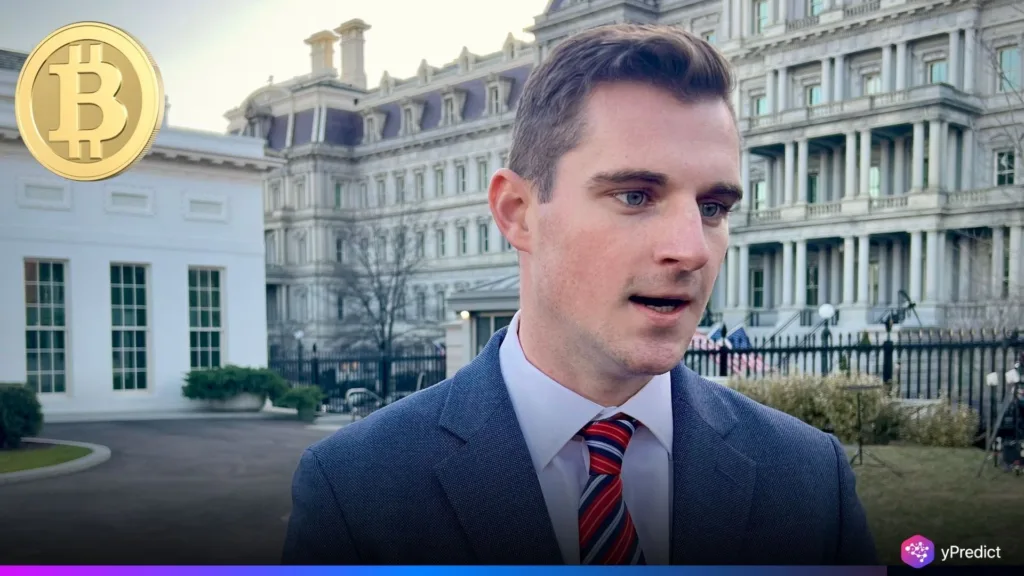
In a surprising turn of events for both the political and cryptocurrency spheres, Bo Hines announced he will be resigning from his position as Executive Director on the White House Crypto Council. Hines is stepping away from his post in the Trump Administration, where he helped shape the U.S. crypto policy landscape. Hines partnered with entrepreneur David Sacks to make America the global leader in digital assets. His vision for digital asset policy was strengthened when the White House issued a groundbreaking 2025 policy, giving 401(k) retirement plans access to crypto investments. According to Ainvest.com, this policy opens up $8.7 trillion in assets to the crypto market.
Bo Hines’ Role in Shaping Crypto Policy
Hines continued the White House’s work on a bipartisan regulatory policy to strike a balance between fostering innovation and protecting investors. The work he did with Sacks materialized as an agenda to integrate crypto into mainstream finance, and helped create 401(k) crypto access, which was one of the most aggressive economic policies this administration has pursued. A 2024 Wired report, following the announcements that the Trump Administration would be adopting crypto, noted substantial market increases. There was a sense of elevated investor optimism during this time, but experts were still warning about the volatility risks, as indicated by a peer-reviewed Journal of Financial Economics study.
Reflective Exit and Political Backdrop
Hines confirmed his exit on August 9, 2025, in a personal post characterizing his experience at the White House as “definitely challenging and transformational.” He recalled his goal to make the U.S. the leading country in crypto governance and noted his pride in building bipartisan support for an industry that is often split along Democrat / Republican lines.
He announced with a photo of Hines and former President Trump with two North Carolina state flags behind him. The picture highlighted Hines’ former background as an NC State football player turned politician, a background that raised some uncertainty about his ability to turn the corner from athletics into high-level policy initiatives.
Controversies and Public Perception
Bo Hines’s rapid political ascent was not without controversy. It seemed that irresolvable disputes would cloud any respect earned early on. Fortunately for him, his record in the Trump Administration redirected the conversation away from residency to the success or failure of his ability to maneuver through political skepticism to gain a voice in important federal policymaking. He was able to frame substantial parts of his career narrative around this story. Some view resignation as a potential destabilizing factor in pro-crypto policy momentum, while others think the architecture that he built, with bipartisan support, means the agenda will persist.
The Future of U.S. Crypto Strategy Post-Hines
Bo Hines resignation leaves an open question about the White House crypto agenda’s next phase. Supporters expect his policy groundwork to guide future developments, even in his absence. The 401(k) crypto access initiative remains the centerpiece of this strategy, potentially unlocking vast sums for digital asset investment and cementing the U.S.’s position in the global crypto economy. Market analysts assume that leadership change inside the council will have a change in tone, but not direction. The Trump Administration has shown it is eager to maintain its crypto-first mandate. However, volatility risk will remain a topic of interest for regulators who must protect the market.
Political insiders speculate that he may go back to the public sector or the private sector, where a hybrid political and crypto policy background could be a hot commodity. His resignation might bring an end to the Hines era at the White House Crypto Council, but the effects of his policies will be felt long after he leaves.






